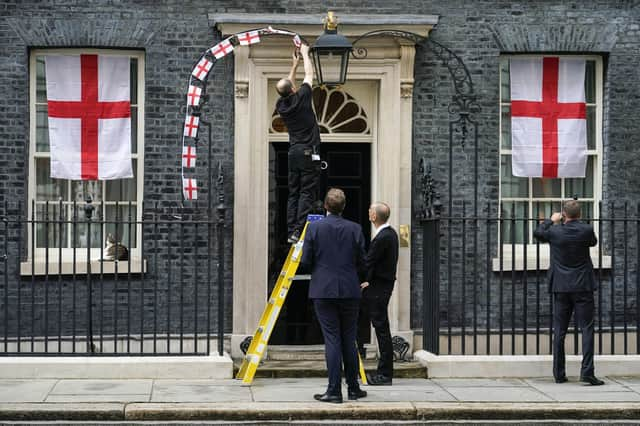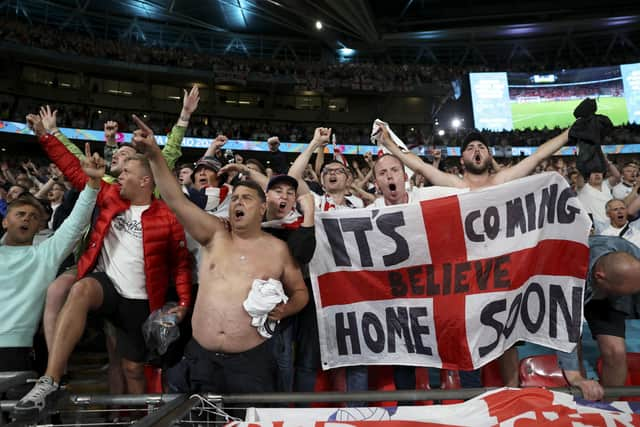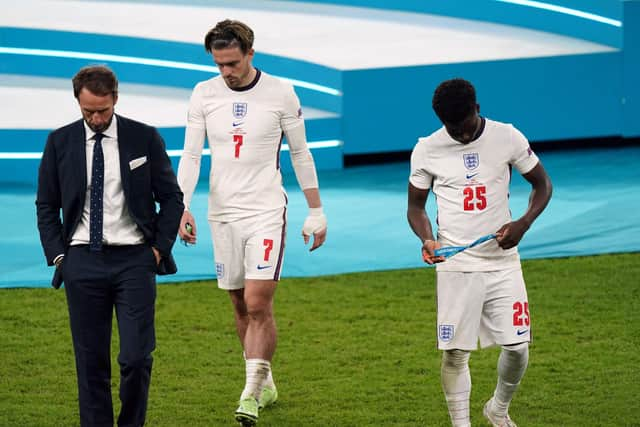Euros row proves politicians must sideline Twitter for good – David Behrens


Yet last Monday, we awoke to blanket coverage of something that should have been every bit as inconsequential. People whose opinions were as worthless as they were unwanted had been allowed to dominate the national agenda with their vile views on members of the England football team at Wembley the previous evening.
It raised two questions: why were such voices allowed access to an audience of countless millions, and – perhaps even more importantly – why did anyone take any notice? Therein lie the problems of social media – it’s not just that it is a giant toilet wall of illiteracy and obscenity; it’s that people who should know better persist in promoting it as a forum in which to conduct the national discourse.
Advertisement
Hide AdAdvertisement
Hide AdThe evidence that it’s not fit for any such purpose is overwhelming. Twitter where last weekend’s firestorm was ignited, is no more a place of sensible debate than a crowded Wetherspoons on a Friday night. No sooner has one argument been settled than a fight breaks out at the next table.


The particulars of the latest controversy, insofar as they bear scrutiny, concern the reactions of the Prime Minister and Home Secretary to the abuse directed at the footballers and to earlier messages from the players themselves – ironically about the stand they were taking against racism. Their symbolic gesture of “taking the knee” was one that had originated in American football before being co-opted by the Black Lives Matter movement and then flown over here on the wings of a million tweets.
Boris Johnson, Priti Patel and many others considered the team to be indulging in “gesture politics” which distracted attention from the deep-rooted inequalities in football and society at large. Others thought that the politicians’ lack of support was tantamount to endorsing racism. Yet this was a branch of discussion that existed almost entirely within the social media bubble. Self-righteous evangelists drove wedges where none were necessary by making disagreement politically incorrect, and the effect was to stigmatise as racist those who wanted a more nuanced debate – feeling, perhaps, that kneeling was subservient or just meaningless. Actual racists, meanwhile, were newly enfranchised – a shift that manifested itself last Sunday night.
Advertisement
Hide AdAdvertisement
Hide Ad

Yet within this intractable argument lie some surprisingly obvious answers – not to racism itself but to the rules of engagement for debating it. The most important of these is the need to relegate Twitter to the fringes of the national discussion. That means politicians – themselves often on the receiving end of abuse – abandoning it in favour of less volatile platforms, such as newspapers, TV and their own unsocial forum, the Palace of Westminster. It is also incumbent upon the media to stop trading in stories based on inflammatory messages from people whose identity and provenance they don’t know. This ought not to be too much of a stretch; it has never been part of the news cycle to quote anonymous gossip overheard in the pub, and that is really all that Twitter amounts to.
There are those who will say that it is too valuable a marketing tool to be sidelined, but people who genuinely understand marketing know that the first rule of the game is to keep control of the message, not broadcast it indiscriminately to be repeated and distorted like a hideous game of Chinese whispers.
Legislation has long been promised and will help, but the real power is in our own hands. The sports community acknowledged this in April by organising a four-day boycott of Twitter – but why stop at just four days?
Advertisement
Hide AdAdvertisement
Hide AdA permanent withdrawal would doubtless fuel insecurity among those who fear they will be denied a voice. But this isn’t an argument about freedom of speech; marginalising social media will not prevent anyone from saying their piece, providing it meets the dual criteria of being neither tedious nor immoral. What it will do is prevent the rest of us from having to listen.
We may not be able to completely extinguish the embers of inequality but we’re doing no-one a service by fanning the flames as freely as we did last Monday.
Support The Yorkshire Post and become a subscriber today. Your subscription will help us to continue to bring quality news to the people of Yorkshire. In return, you’ll see fewer ads on site, get free access to our app and receive exclusive members-only offers. Click here to subscribe.
Comment Guidelines
National World encourages reader discussion on our stories. User feedback, insights and back-and-forth exchanges add a rich layer of context to reporting. Please review our Community Guidelines before commenting.